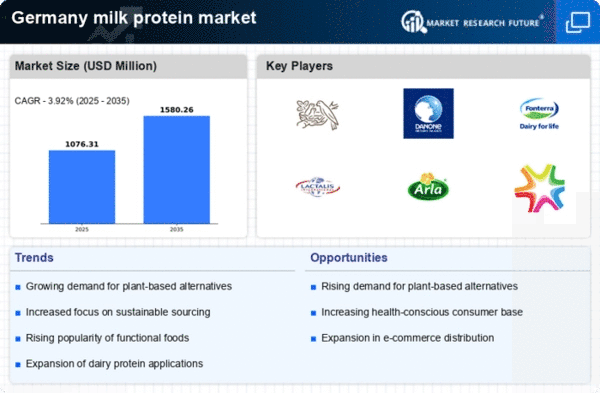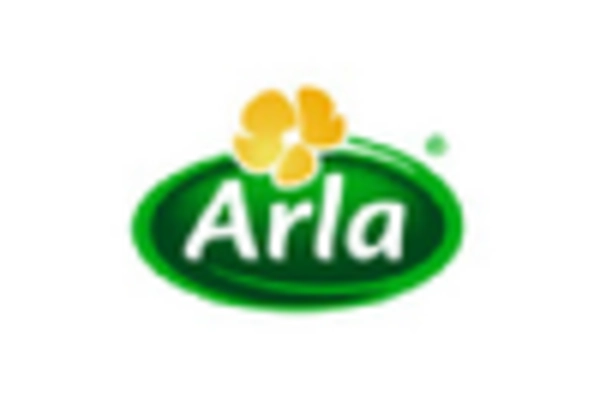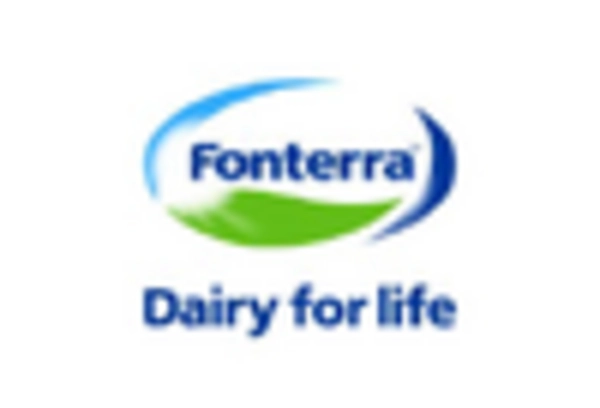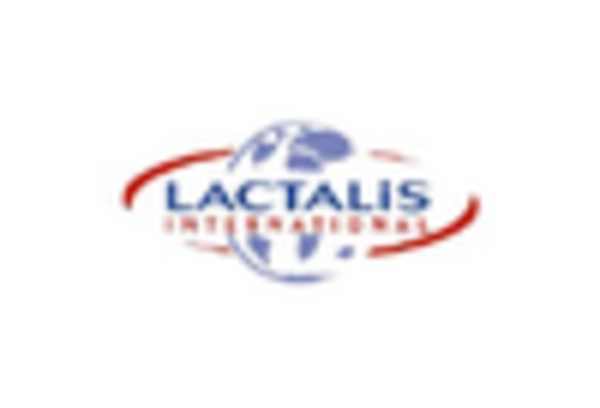Growth of Functional Foods
The functional foods segment in Germany is witnessing significant growth, with consumers increasingly seeking products that offer health benefits beyond basic nutrition. The milk protein market is well-positioned to capitalize on this trend, as milk proteins are often incorporated into functional food products such as yogurt, cheese, and protein bars. In 2025, the functional food market in Germany is expected to reach a valuation of €10 billion, with a substantial portion attributed to milk protein-based products. This shift towards functional foods indicates a broader consumer preference for products that support health and wellness, thereby driving the demand for milk protein in various applications within the food industry.
Emerging Trends in Sports Nutrition
The sports nutrition segment in Germany is rapidly evolving, with an increasing number of athletes and fitness enthusiasts seeking specialized nutrition products. The milk protein market is poised to benefit from this trend, as milk proteins are recognized for their high biological value and effectiveness in muscle recovery. In 2025, the sports nutrition market in Germany is expected to exceed €1 billion, with a significant portion attributed to milk protein-based products. This growth indicates a shift towards more sophisticated nutritional solutions, where the milk protein market can play a crucial role in meeting the demands of this expanding consumer base.
Rising Demand for Protein-Rich Diets
The increasing awareness of health and fitness among consumers in Germany is driving the demand for protein-rich diets. This trend is particularly evident among fitness enthusiasts and health-conscious individuals who seek to enhance their protein intake for muscle recovery and overall well-being. The milk protein market is experiencing a notable surge, with a projected growth rate of approximately 6.5% annually. This growth is fueled by the rising popularity of protein supplements and fortified foods, which often incorporate milk proteins as a primary ingredient. As consumers become more educated about the benefits of protein, the milk protein market is likely to expand further, catering to a diverse range of dietary preferences and lifestyles.
Regulatory Support for Dairy Industry
The regulatory environment in Germany is increasingly supportive of the dairy industry, which positively impacts the milk protein market. Government initiatives aimed at promoting dairy consumption and supporting local farmers contribute to a stable market environment. In 2025, the German dairy sector is projected to receive approximately €200 million in subsidies, aimed at enhancing production efficiency and sustainability. This support not only bolsters the milk protein market but also encourages innovation in product development and marketing strategies. As regulations evolve to favor sustainable practices, the milk protein market is likely to benefit from enhanced consumer trust and loyalty.
Increased Popularity of Dairy Alternatives
The rise of dairy alternatives in Germany is reshaping the landscape of the milk protein market. As more consumers adopt plant-based diets or reduce their dairy consumption, there is a growing interest in milk protein alternatives derived from sources such as soy, almond, and pea. However, traditional dairy products, particularly those rich in milk proteins, continue to hold a significant market share. The milk protein market must adapt to this changing consumer preference by innovating and offering hybrid products that combine dairy and plant-based proteins. This trend suggests a potential for growth in niche markets, appealing to both traditional dairy consumers and those exploring alternative protein sources.
















